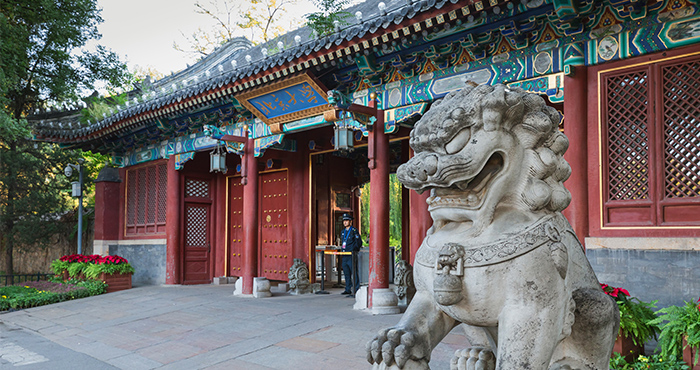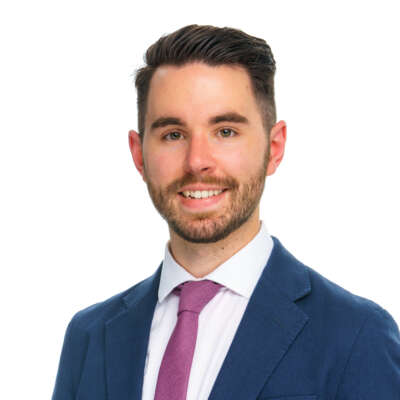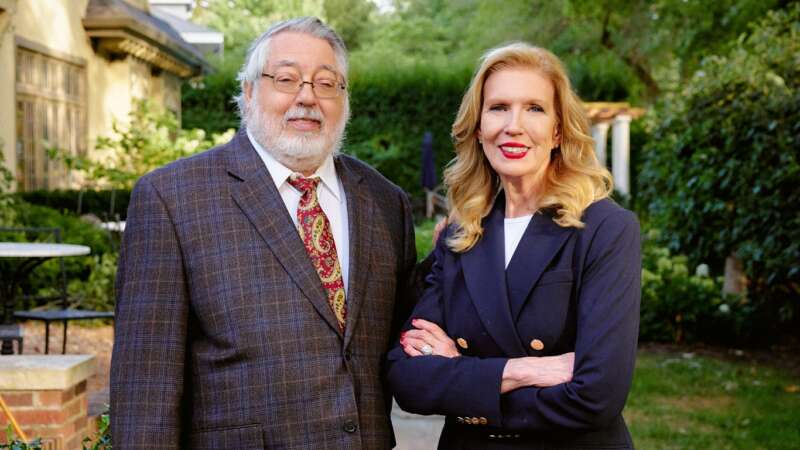“Without Kansas State, my story would be very different.”
When Dr. Charles Yang was deprived of a Chinese government scholarship to study in the United States, K-State offered him a graduate assistantship, which made it possible to launch his research career in the U.S. at the age of 39. K-State gave him hope and encouragement to pursue his dream. That’s why Charles decided to give to K-State — to help recruit graduate researchers in chemistry and so others might share his dream.
A difficult beginning
Charles was born in China in January 1944. Just a couple months later, during the turmoil at the end of World War II, his father was kidnapped. Charles was only two months old. The family paid the demanded ransom, but his father never returned.
“My father was the only son, and his death devastated the family. It was just my grandparents, my mother and me in the family,” Charles said. “My mother never remarried.”
From a very young age, Charles felt responsible to care for his mother and grandparents. Knowing education was the key to providing for them, he committed himself to being a successful student. After graduating from high school in 1963, he was admitted to Peking University in Beijing, which was one of the first universities in China and is still one of the best universities in the country. “I majored in chemistry. It appeared to be the beginning of a happy story,” Charles said, “but it turned out to be the start of a very difficult period in my life.”
A disrupted life
Peking University took over the library of Yenching University after it was dismantled by the Chinese government in 1952. Yenching University was a prestigious English-speaking university established by Americans in Beijing in the 1920s. Charles enjoyed reading the English books originally belonging to Yenching University library. In October 1965, classes ended abruptly as Charles had just begun his third year of a six-year chemistry program. Students were sent to the countryside to participate in the “Socialist Education Movement,” the purpose of which was to purge the local communist party organizations.
The political movement in the countryside was followed by the Cultural Revolution, which started nationwide in May 1966. The Cultural Revolution became a decade-long campaign against traditional Chinese culture and “capitalists” in the party. The university was closed, and college education became brainwashing and factional fighting among students, faculty and staff. The government deemed Charles “graduated” in 1969, and he was sent to a remote rural area in central China for “re-education” in the spring of 1970.
In the early 1970s, Mao’s class struggle started a new political campaign mainly targeting younger intellectuals. A mysterious counter revolution organization called “May 16” was created as an excuse for the new purge. Thousands of people were imprisoned nationwide.
“One day in February 1971, I was taken from the rural village in central China and put into solitary confinement in a small room in the Southern Physics Building on the Peking University campus,” Charles said. The psychological pressure in solitary confinement was unbearable, but Charles could not give his interrogators the desired confession of belonging to May 16 because it had never existed.
In the earlier years of the Culture Revolution, Charles had three close friends from Peking University who committed suicide. At one point in September 1971, Charles was close to the mental breaking point his friends had reached before they took their own lives. Thinking of his aging grandparents and his mother eventually gave Charles the strength to endure the unendurable.
After 14 months of solitary confinement and four months of manual labor at Peking University, Charles was set free because no evidence had been found to prove any of the charges against him.
Reaching for hope
After his release, Charles worked in a chemistry research institute in central China, but he felt inadequate to the job because his college education was cut short by the Cultural Revolution. After Mao Zedong’s death in 1976, the Chinese education system gradually returned to normal. After the 13-year disruption of his education, Charles passed a competitive entrance exam and went to study at Nanjing University as a graduate student in 1978.
Charles’ true dream was to study for a doctorate in chemistry, but no universities in China offered a Ph.D. at that time. By the late 1970s, the U.S. and China had normalized their diplomatic relations, and collaborations were gradually established between universities in the two countries. In 1978, a small number of graduate students in China were selected to study abroad with a government scholarship after passing a competitive exam administrated by the Ministry of Education. Charles passed the exam in 1978, and while still a student at Nanjing University in 1979, he prepared to study abroad.
Because China was in total isolation for the previous three decades, information about application and admission procedures in American universities was not available to students in China. At Nanjing University, students who received government scholarships relied entirely on inefficient university administrators.
Wanting to send his applications to the U.S. directly, Charles approached an American professor from State University of New York (SUNY) at Albany when the professor was giving a lecture at Nanjing University in April 1979. He asked the professor about how to apply to the graduate school at SUNY, and the request was later passed to the SUNY president who was also in the delegation visiting Nanjing University.
“I did not realize that such an individual-driven initiative was interpreted as ignoring the university communist party leadership,” Charles said, “I was in deep trouble.” In the summer of 1979, the Ministry of Education scholarship was taken away by a vice president of Nanjing University.
“Such a tremendous setback did not weaken my desire to go to the U.S. for a terminal degree,” Charles said. He completed his course work and research project successfully. All his research data was published in peer-reviewed journals later in the U.S. He received a master’s degree in polymer chemistry in 1981.
Charles applied to four universities in the U.S., including Kansas State University, in the fall of 1981. Admission to graduate schools in the U.S. required passing scores on TOEFL (Test of English as a Foreign Language) and GRE exams, and transcripts of college courses completed. Charles had a problem because the GRE and TOEFL tests were not offered in China at that time, and his Peking University transcript only listed courses for two years in a six-year chemistry program.
A hope fulfilled
Charles returned to the research institute in central China after completing his studies at Nanjing University. All he could do was wait, hoping at least one of his applications would be accepted, but he heard nothing. In late May 1982, while on a business trip to Nanjing, Charles visited Nanjing University. He found a letter for him setting at the chemistry department office. It was a letter from the KSU chemistry department offering both admission to its graduate program and a nine-month assistantship. The letter specifically required notification of acceptance by May 31, 1982. When Charles opened the letter, it was already late in the afternoon of May 31. An American student at Nanjing University reminded him that it was still early morning in Kansas because of the 13-hour difference. Charles used half of his monthly pay, $15, to send a four-word telegram to K-State: “ACCEPT ADMISSION. LETTER FOLLOWS.”
“After the political witch hunt in Peking University and the mistreatment in Nanjing University, K-State welcomed me,” Charles said. “K-State even extended the offer for one year so I could have enough time to navigate a complicated process to obtain a passport.”
On December 25, 1982, Charles finally arrived in Manhattan, Kansas. “It was a very cold Christmas night with snow everywhere, but I felt extremely warm in my heart,” Charles said.
As the spring semester began, Charles turned 39-years old, an atypical graduate student. Professor William Fateley, a well-known vibrational spectroscopy scholar, became Charles’ major advisor. “The department gave me a job in the lab storeroom for the first semester, which allowed me to have more flexibility to fit in the busy class schedules,” Charles said.
Dr. Fateley’s consistent support, guidance and encouragement in all those years helped Charles to become a very productive graduate student. He published eight papers for research conducted at K-State and three papers based on the research data he had collected at Nanjing University. Charles finished his graduate study and received his Ph.D. in analytical chemistry in August 1987.
With the research and teaching experience he received at K-State, Charles was well prepared successful career in academia. He accepted an offer as an assistant professor at Marshall University in West Virginia and joined the chemistry department there in September 1987. Within three years, Charles moved to the Department of Textiles, Merchandizing and Interior at the University of Georgia as an associate professor to teach analytical chemistry and polymer chemistry. He was promoted to the rank of professor in 1995, eight years after he had earned his Ph.D.
Charles published more than 120 papers in peer-reviewed international journals and holds seven patents on chemically modified cotton. He has received several national and international awards and recognitions for his work, and in 2012, Charles received the Olney Medal, the highest honor of the American Association of Textiles Chemists and Colorists. He recently retired after 23 years of teaching and research at University of Georgia.
Recently, Charles created the Charles Yang Graduate Student Research Fund at K-State to provide financial assistance to graduate students performing research in K-State’s Department of Chemistry. He hopes his gift will help attract more qualified students to become innovative chemistry researchers and live their own K-State stories.
“In my most difficult time, having been unfairly denied my scholarship to study in the U.S. and not fully recovered from the physical and mental damages during the cultural revolution, I finally had a new start in a new world because of the support from Kansas State University in 1982,” Charles said. “Coming from China to the U.S., I was so excited — like a bird finally leaving the cage to fly under a blue sky. I could pursue my dream.”
To learn how you can help students pursue their dreams with an estate gift, visit our gift planning website, k-statelegacy.org. You’re invited to contact our Gift Planning Team via email, giftoptions@ksufoundation.org, or phone, 785-775-2000, to help K-State.






